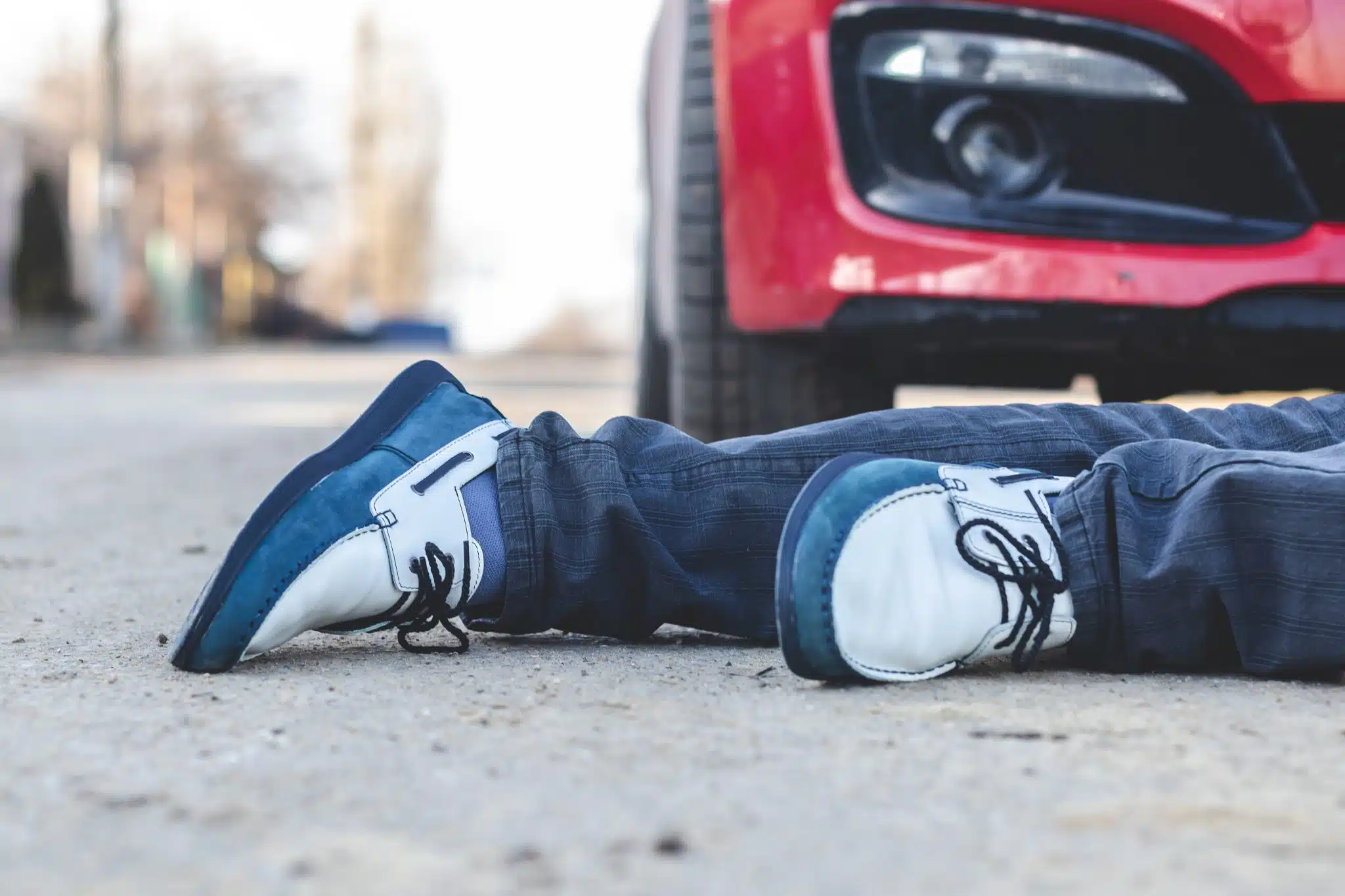
Suffering a head injury in an accident can be life-changing. Whether it’s a car crash, a slip and fall, or a workplace accident, head injuries are often unpredictable, both in their immediate impact and their long-term consequences.
What might seem like a minor bump or concussion at first can later manifest into chronic pain, cognitive challenges, or other debilitating symptoms. If someone else’s negligence caused your head injury, you deserve compensation that reflects the full extent of your suffering—both now and in the future.
At The Rothenberg Law Firm Accident and Injury Lawyers, our personal injury attorneys understand how overwhelming this experience can be. With over 50 years of business helping injury victims secure compensation, we know that no two head injury cases are alike.
We are prepared to work with you to explore the factors that influence the value of a head injury claim, including the types of accidents that cause these injuries, the danger of head injuries, their potential long-term effects, and the damages you may recover.
If you’re facing the challenges of a head injury caused by someone else’s negligence, legal support is vital to protect your rights and pursue the justice you deserve.
What Types of Accidents Cause Head Injuries?
Head injuries can occur in virtually any scenario where trauma is inflicted on the skull or brain. Some common accidents that personal injury lawyers see that often result in head injuries include:
- Motor Vehicle Accidents: Car, truck, or motorcycle crashes frequently lead to head injuries, particularly when occupants hit the steering wheel, dashboard, or window.
- Slip and Falls: Dangerous property conditions, like wet floors or uneven surfaces, can cause someone to fall and hit their head.
- Workplace Accidents: Construction sites and industrial environments are particularly prone to accidents involving falling objects or slip hazards, both of which can lead to head trauma.
- Sports-Related Injuries: High-impact sports like football, hockey, and boxing carry significant risk for concussions and traumatic brain injuries (TBIs).
- Bicycle and Pedestrian Accidents: Cyclists and pedestrians are vulnerable to head injuries when struck by vehicles, even when wearing helmets.
- Acts of Negligence or Violence: Assaults or other intentional acts of harm can also result in serious head trauma. These may fall under negligent security in premises liability claims.
If you’ve experienced any of these accidents due to someone else’s negligence, you may be entitled to compensation through a personal injury claim.
Types of Head Injuries
Head injuries can range from mild to severe, and their classification often depends on the location and extent of the trauma. However, every head injury should be taken seriously, even if it seems minor initially. Some common types of head injuries include:
- Concussions: Often caused by a blow to the head, concussions can lead to headaches, dizziness, nausea, and memory issues.
- Contusions: These are bruises on the brain tissue, often resulting from direct impact.
- Skull Fractures: A break in the skull bone can cause additional damage to the brain, especially if bone fragments penetrate brain tissue.
- Traumatic Brain Injuries (TBI): TBIs vary in severity and may include closed head injuries (where the skull remains intact) or penetrating injuries (where an object breaches the skull).
- Hematomas: Blood clots in or around the brain can lead to increased pressure, causing further complications.
- Diffuse Axonal Injuries: These occur when the brain shifts rapidly inside the skull, leading to widespread damage.
Each of these injuries can vary widely in symptoms, severity, and required treatment, underscoring the importance of thorough medical evaluations.
The Hidden Danger of Head Injuries
One of the most troubling aspects of head injuries is that their severity may not be immediately apparent. Individuals may feel fine immediately after an accident, only to experience worsening symptoms days or weeks later. This delay in diagnosis can complicate treatment and increase the risk of permanent damage.
For example, a seemingly mild concussion can evolve into post-concussion syndrome, causing chronic headaches, fatigue, and memory problems. Similarly, untreated hematomas can lead to life-threatening brain swelling. The potential for progressive injury makes it critical to seek medical attention promptly and follow up with all recommended tests and treatments.
Potential Long-Term Effects of Head Injuries
Head injuries often have ripple effects that extend far beyond the initial trauma. These long-term consequences may include:
- Cognitive Impairments: Memory loss, difficulty concentrating, and impaired problem-solving skills.
- Emotional and Psychological Issues: Anxiety, depression, irritability, and personality changes are common among TBI survivors.
- Physical Limitations: Chronic headaches, light and sound sensitivity, and balance or coordination difficulty.
- Loss of Independence: Severe cases may require ongoing care, limiting a person’s ability to live independently.
- Employment Challenges: Many individuals with head injuries are unable to return to their previous jobs, leading to financial strain.
These effects can profoundly impact your quality of life and financial stability, making fair compensation essential to securing your future.
Damages You May Recover from a Head Injury Claim
A successful head injury claim can provide compensation for a variety of damages, including:
- Medical Expenses: Emergency room visits, surgeries, and hospital stays; ongoing treatments, such as physical therapy or psychological counseling; costs for medical equipment or home modifications.
- Lost Income: Lost wages during recovery and reduced earning capacity if your injury limits your ability to work in the future.
- Pain and Suffering: Compensation for physical pain, emotional distress, and diminished quality of life.
- Long-Term Care Costs: Expenses for in-home care or assisted living, if needed.
Property Damage: Reimbursement for any personal property damaged in the accident, such as a vehicle or bicycle.
Every case is unique, and the amount of compensation you may receive depends on the severity of your injuries, the impact on your life, and the quality of evidence presented.
What Are Future Damages in a Head Injury Claim?
Future damages in a head injury claim refer to the compensation awarded for the anticipated long-term impact of a head injury. These damages account for the ongoing physical, emotional, and financial challenges you may face as a result of the accident.
Because head injuries often have lasting effects, future damages are critical to ensuring that victims receive fair compensation for expenses and losses they are likely to incur after a settlement or verdict.
Types of Future Damages in a Head Injury Claim
- Medical Costs: Anticipated treatments, such as surgeries, physical therapy, or psychological counseling; long-term care costs, including in-home nursing or assisted living facilities; expenses for medical devices, mobility aids, or home modifications to accommodate disabilities.
- Lost Earning Capacity: Compensation for reduced ability to work or the complete inability to return to your previous profession; wages lost due to retraining for a new career or transitioning to a less physically demanding role; loss of future career advancement opportunities or benefits, such as promotions or retirement contributions.
- Pain and Suffering: Ongoing physical pain or discomfort caused by the head injury; emotional distress, such as depression, anxiety, or PTSD, that is expected to persist.
- Loss of Enjoyment of Life: Compensation for the inability to participate in activities you once enjoyed, including hobbies, social events, or spending time with loved ones.
How Are Future Damages Calculated?
Calculating future damages in a head injury claim involves projecting your injury’s potential financial and non-financial impacts over time. Because these damages are not based on immediate costs, they require careful analysis and often rely on expert testimony.
- Medical Expert Evaluations: Doctors and medical specialists assess your injury’s long-term prognosis, including the likelihood of complications or additional treatments. Testimony from specialists helps estimate future medical costs and the expected duration of care.
- Economic Expert Testimony: Economists calculate the financial impact of lost earning capacity by considering your age, career, education, and potential for future promotions or raises. They also account for inflation and the rising costs of medical care over time.
- Life Care Plans: A life care planner may develop a comprehensive report outlining the expected costs of long-term care, medical treatments, and rehabilitation services. This report provides a detailed roadmap for the financial resources needed to manage your condition effectively.
- Pain and Suffering Valuations: Non-economic damages like pain and suffering are typically calculated using methods such as the multiplier method, where the total economic damages are multiplied by a number reflecting the injury’s severity. Alternatively, the per diem method assigns a daily monetary value to your suffering and multiplies it by the estimated duration of recovery or disability.
- Projected Lifespan: Your life expectancy is factored into calculations to determine the duration of future expenses and losses, ensuring that compensation aligns with your anticipated needs.
Why Future Damages Are Essential
Future damages are vital in head injury claims because they address the long-term consequences of injuries that are often progressive. A settlement or verdict that only accounts for current costs risks leaving victims under-compensated and financially vulnerable as their condition evolves.
By pursuing future damages, you can secure financial stability and the resources necessary to manage your recovery and adapt to life after a serious head injury. At The Rothenberg Law Firm Accident and Injury Lawyers, we work with medical and economic experts to ensure your future damages are fully documented and fairly valued.
Who May Be Held Liable in a Head Injury Case?
Determining liability in a head injury case is critical to recovering compensation for your damages. Liability depends on the circumstances of the accident and the negligent party’s role in causing your injury. Multiple individuals, companies, or entities could share responsibility for a head injury, depending on the specifics of the case. Below, we outline some common scenarios and potential liable parties.
Drivers in Motor Vehicle Accidents
Motor vehicle accidents are a leading cause of head injuries, particularly traumatic brain injuries (TBIs). A driver may be held liable if they were negligent by:
- Speeding or engaging in reckless driving.
- Driving under the influence of drugs or alcohol.
- Failing to yield, running red lights, or violating other traffic laws.
- Driving while distracted, such as texting or using a mobile device.
Property Owners in Premises Liability Cases
Slip and fall accidents, often resulting in head injuries, may occur due to hazardous conditions on someone else’s property. Property owners or managers may be liable if they fail to:
- Address unsafe conditions, such as wet floors, uneven surfaces, or loose carpeting.
- Provide adequate lighting in stairwells or walkways.
- Warn visitors of known hazards, such as a “Caution: Wet Floor” sign.
Business owners, landlords, or even government entities responsible for maintaining public spaces can be held accountable under premises liability laws.
Employers in Workplace Accidents
Work-related head injuries are common in industries like construction, manufacturing, or warehousing. Employers may be liable if:
- Proper safety protocols were not enforced.
- Employees were not provided with adequate training or personal protective equipment (PPE), such as helmets.
- Equipment or machinery was not properly maintained or was defective.
In some cases, a third party, such as a subcontractor or equipment manufacturer, may share liability.
Product Manufacturers in Defective Product Cases
A defective product can lead to serious head injuries, particularly in cases involving faulty helmets, airbags, or machinery. Product manufacturers, designers, or distributors may be held liable under product liability laws if the injury resulted from:
- Design defects that make the product inherently dangerous.
- Manufacturing defects that occur during production.
- Inadequate warnings or instructions for safe use.
Medical Professionals in Malpractice Cases
If a head injury was misdiagnosed or improperly treated, a medical professional or healthcare facility could be held liable for any resulting harm. Examples of medical negligence include:
- Failing to diagnose a concussion, hematoma, or TBI.
- Delaying necessary treatment or surgery.
- Administering incorrect medications or dosages that exacerbate the injury.
Rideshare Companies in Rideshare Accidents
If your head injury occurred in an accident involving a rideshare vehicle (e.g., Uber or Lyft), liability might extend to:
- The rideshare driver if they were negligent.
- The rideshare company, if its policies contributed to the accident or if its insurance coverage applies.
Property or Business Owners in Violent Assaults
If a head injury resulted from a violent assault, the perpetrator of the assault may be held liable. Property or business owners may also be responsible if the incident occurred on their premises and they failed to provide adequate security measures to prevent foreseeable harm.
Proving Liability in a Head Injury Case
Establishing liability requires demonstrating that the negligent party owed you a duty of care, breached that duty, and directly caused your injury. A skilled personal injury attorney will collect evidence to support your claim, such as:
- Accident reports or police records.
- Surveillance footage or photographs of the accident scene.
- Eyewitness statements.
- Medical records documenting your head injury.
- Expert testimony to establish causation and damages.
Contact The Rothenberg Law Firm Accident and Injury Lawyers Today
Navigating a head injury claim without a lawyer can be overwhelming. Insurance companies often try to minimize payouts, and complex medical evidence can be challenging to present effectively. At The Rothenberg Law Firm Accident and Injury Lawyers, we have spent over five decades securing billions in compensation for clients just like you.
Our team will handle every aspect of your case, from negotiating with insurance companies to preparing for trial if necessary so you can focus on healing. Contact us today for a free consultation. Let us help you rebuild your life after a head injury. Call us at 800-624-8888 or contact us online to get started.



